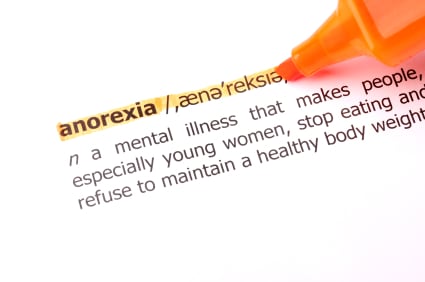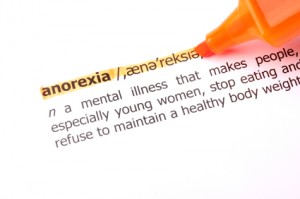By: Tanya Berg, MS, RD, CDN, Devorah Levinson, Director Eating Disorders Division Relief Resources and Elisheva Wollner, LCSW
Eating disorders, as with any mental illness, show no boundaries between demographics, with several studies indicating a rise in the problem for Jewish women. The Jewish community is not immune to the various diet and health misconceptions, pressure to be thin, and biological and environmental factors which contribute to the rising numbers of eating disorders, anorexia nervosa, bulimia nervosa and binge eating disorder. Eating disorders affect the entire Jewish community, from the irreligious to the ultra-orthodox.
There is no single reason for the growing number of cases. No matter how we try to shelter or protect our children, their ideas about being thin and desire for perfection seep into their lives. Eating disorders in the Jewish community arise and manifest themselves very similarly to eating disorders in the secular world, and can be potentially life-threatening. What differs however is the effect that culture has on the eating disorder as well as in the treatment and recovery process.
According to a recent article in the Washington Post, health experts say eating disorders are “underreported among Orthodox Jewish women and to a lesser extent others in the Jewish community, as many families are reluctant to acknowledge the illness at all and often seek help only when a girl is on the verge of hospitalization.” Reluctance to acknowledge an eating disorder is impacted by stigma of mental illness in Orthodox Jewish communities, as well as the importance of being thin for marriage arrangements among the ultra-Orthodox. As with the community at large, Jewish girls may turn to an eating disorder in an attempt to achieve what they believe is perfection and control. In Jewish Orthodox communities, an eating disorder may be used as a coping mechanism because it is perceived as more “socially acceptable” than other behaviors such as drug abuse.
Furthermore, just as with the general population, there are also individuals who unfortunately have suffered from various traumas and abuse and will turn to eating disorder behaviors as a way of expressing themselves. In the Orthodox community, while the dating processes are different than in the secular world, girls have reported hearing their mothers or other community members discussing how being thin is important for dating.
With society’s notion that “thin is beautiful” surrounding us from all sides, it’s no wonder young girls when starting to date tend to focus on being thin rather than finding their soul mate. In one study of ultra-Orthodox and Syrian Jewish communities in Brooklyn, 1 out of 19 girls was diagnosed with an eating disorder, which is a rate about 50 percent higher than the general U.S. population (Sacker, 1996).
Food is a central part of the Jewish culture and is prepared in abundance for Shabbat and Holiday meals. Preoccupations with food can exacerbate eating disorder issues for those who struggle. Eating disorder thoughts and pressures tend to be stronger during holiday times. The individual might “save” her calories during the week in order to indulge at the Shabbat or holiday meal, however, this usually leads to either bingeing or further restricting, due to the intense fear of overeating. Those who struggle may begin to omit traditional Shabbat foods, or participate but purge later. The inability to participate in formal exercise on Shabbat or holidays may lead the individual to take extensive Shabbat/holiday walks or rush out to the gym as soon as Shabbat or the holiday is over.
With Shabbat, holidays, kashrut and other nuances of Orthodox Jewish life, the patient can often feel misunderstood or weary of clinicians from other backgrounds. Coupled with the stigma surrounding mental illness, these families are often unsure of where to turn and hesitant to take action. Therefore the needs of a Jewish patient often times require specific knowledge on the part of the treatment team. The Orthodox Jewish community is slowly taking action and addressing these issues. The community has become aware that eating disorders are very serious and can be life-threatening. The most effective treatment will be from individuals who are culturally sensitive and those that can collaborate with the appropriate treatment team.
If someone you know may be struggling, express your concern. The National Eating Disorders Association (NEDA) provides a Parent Toolkit, which offers more information about eating disorders and how to start a discussion with a loved one.
For more information regarding eating disorders in the Orthodox Jewish community and culturally specific resources and treatment referrals:
- Relief Resources: A mental health referral organization providing information and referrals to clinicians or programs experienced in dealing with Orthodox Jewish patients.
- Orthodox Union: Provides professional and parent workshops, hosts a conference on eating disorders and produced the documentary, “Hungry to be Heard”, focusing on the rising rates of anorexia, bulimia, and other eating disorders in the Jewish community.
You can also call the NEDA Helpline at 800-931-2237 or visit the NEDA website (www.NationalEatingDisorders.org) for treatment and support group referrals.
Reprinted with permission of the National Eating Disorders Association. For more information visit www.NationalEatingDisorders.org.
The words of this author reflect his/her own opinions and do not necessarily represent the official position of the Orthodox Union.

